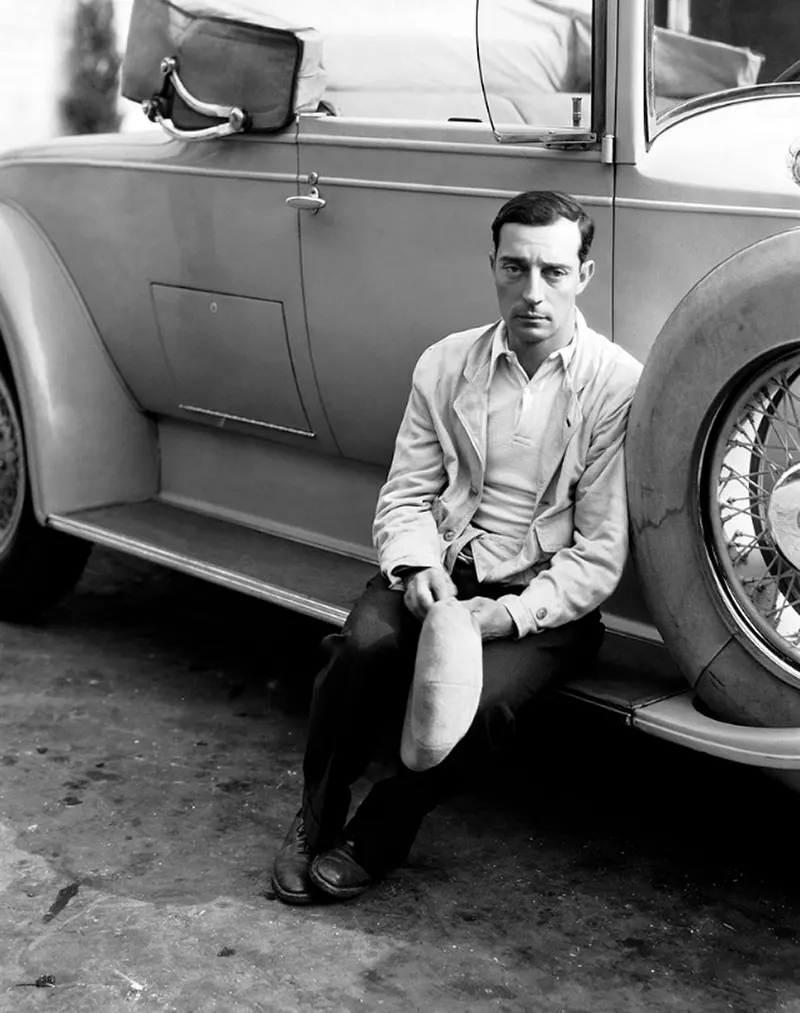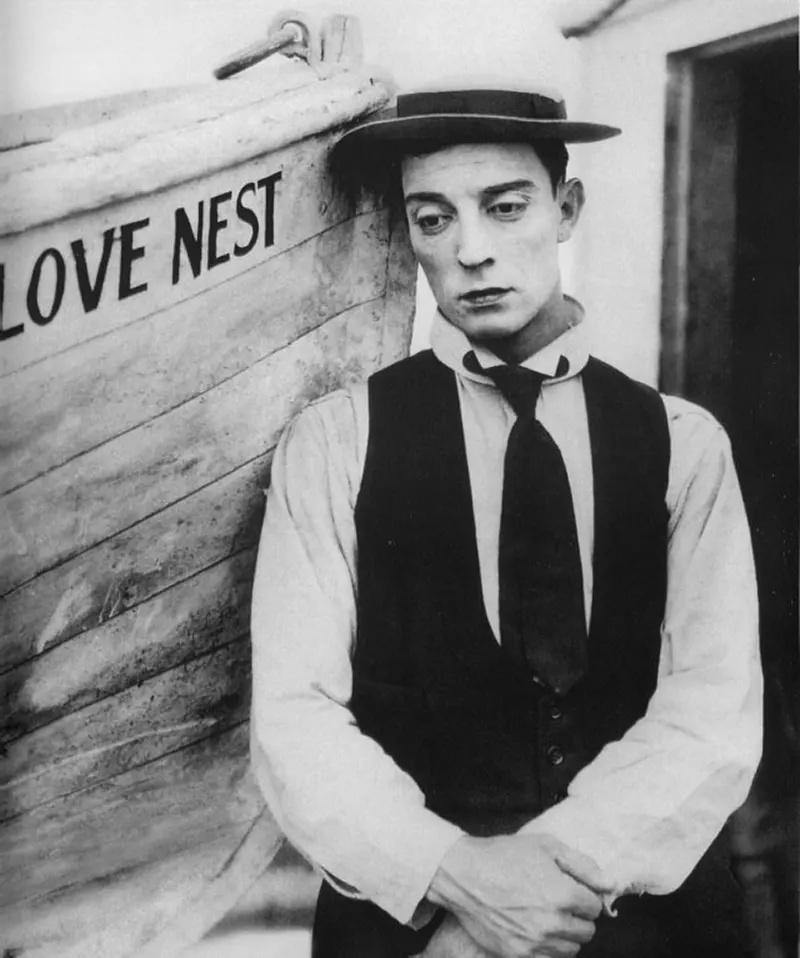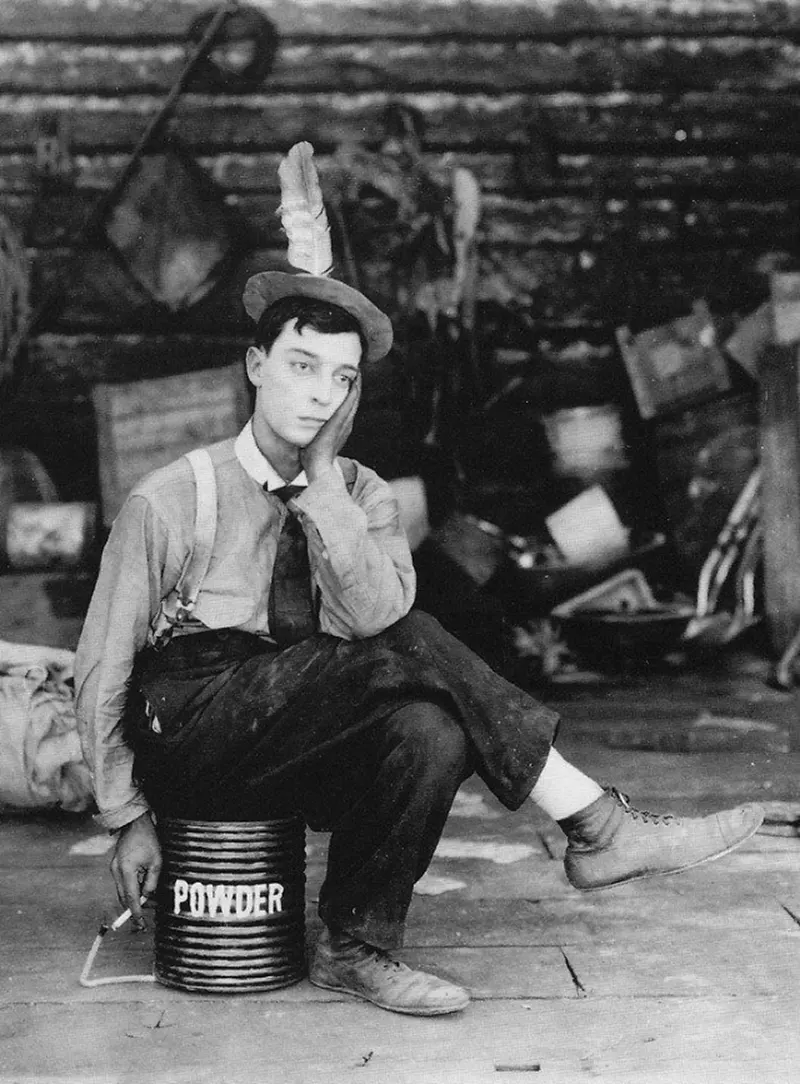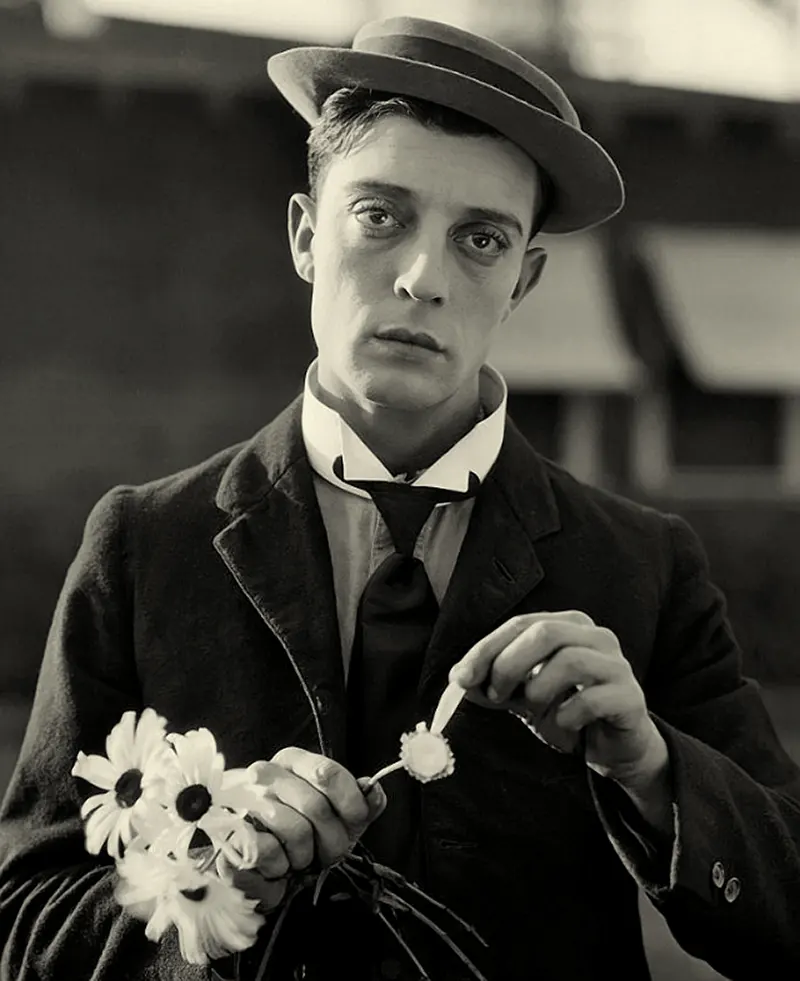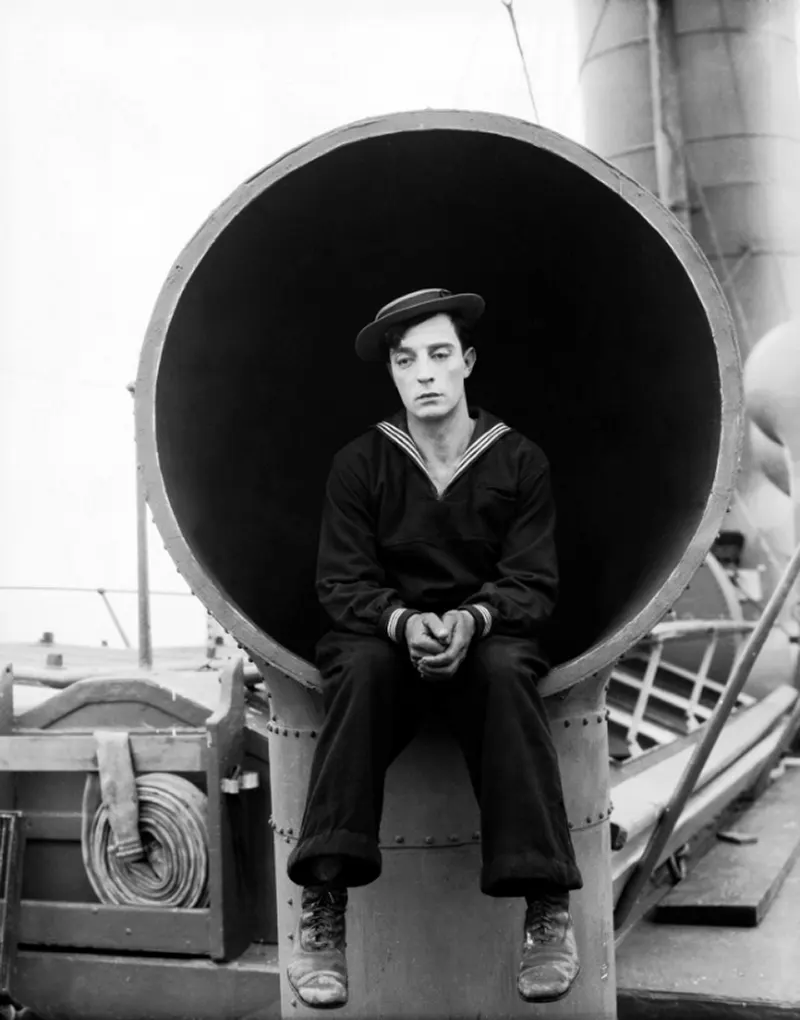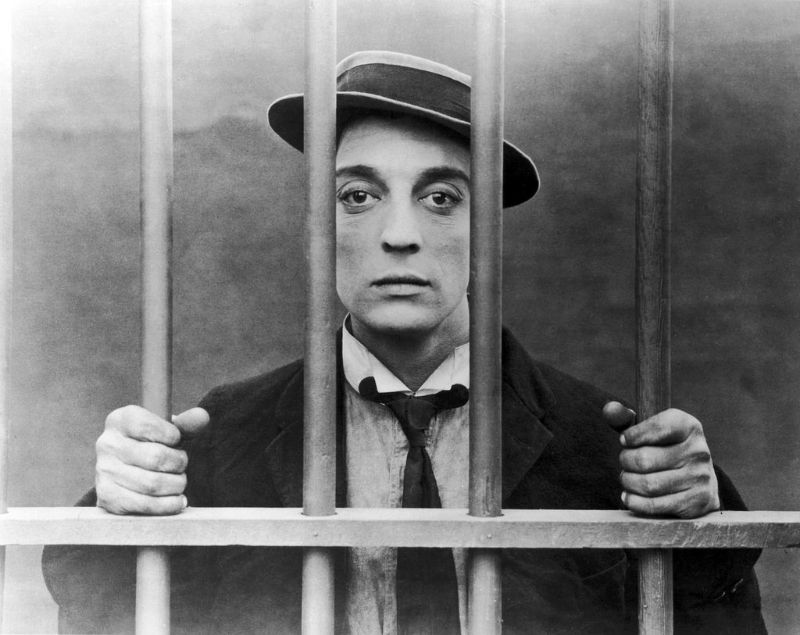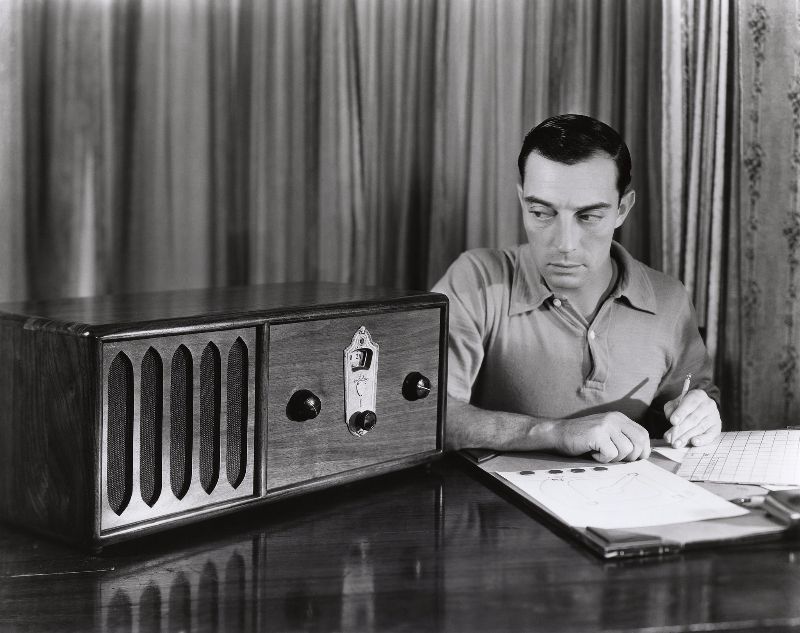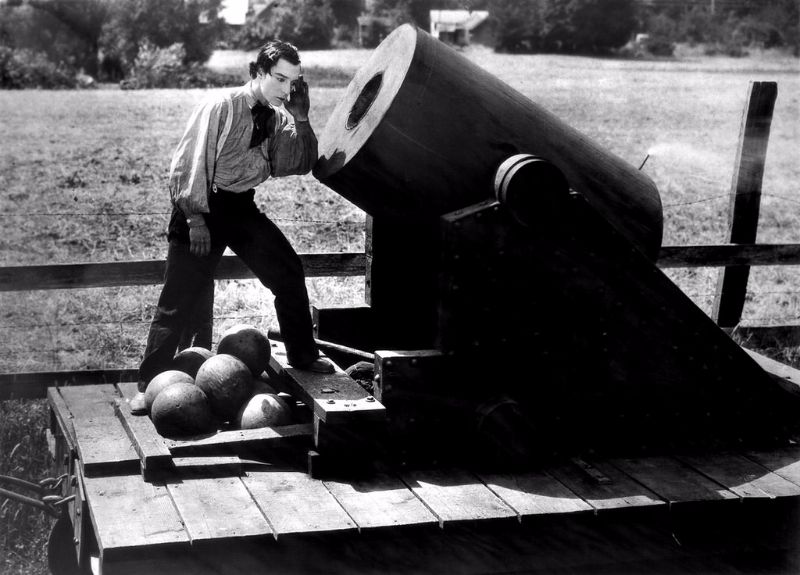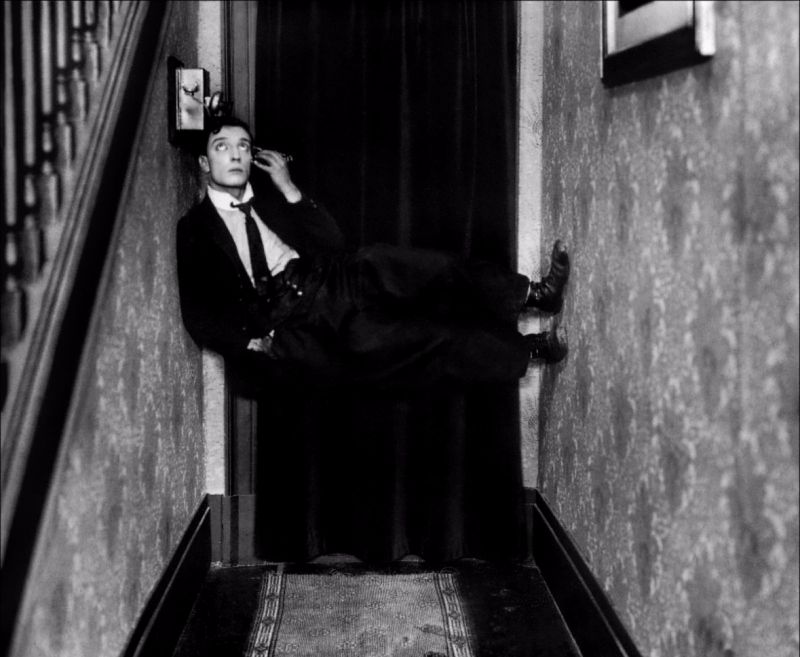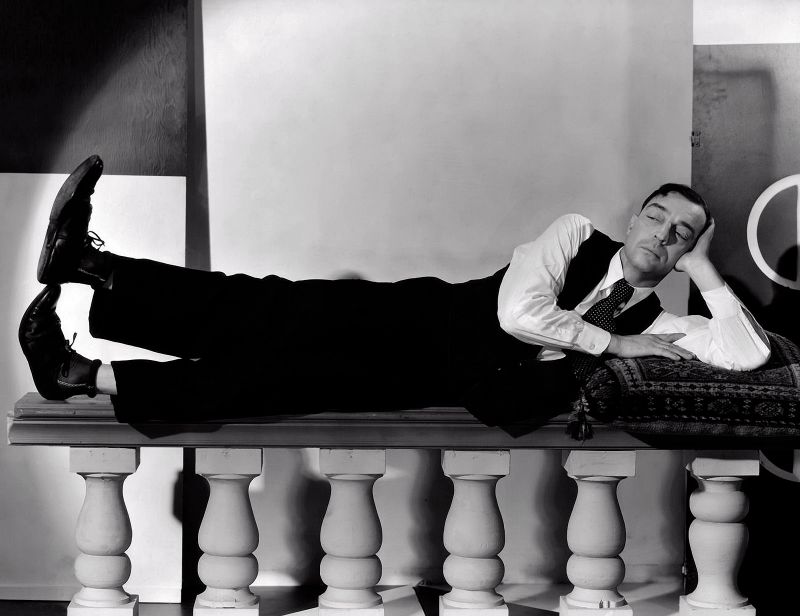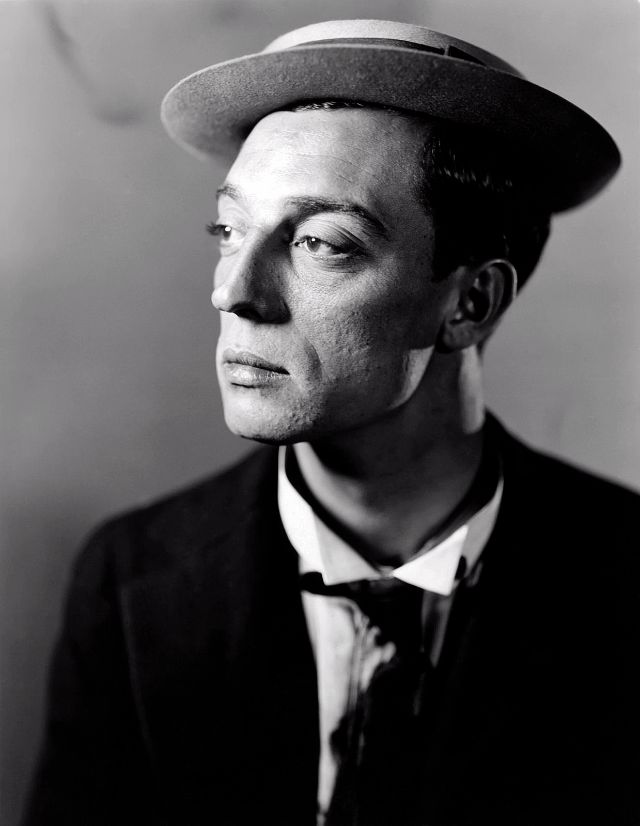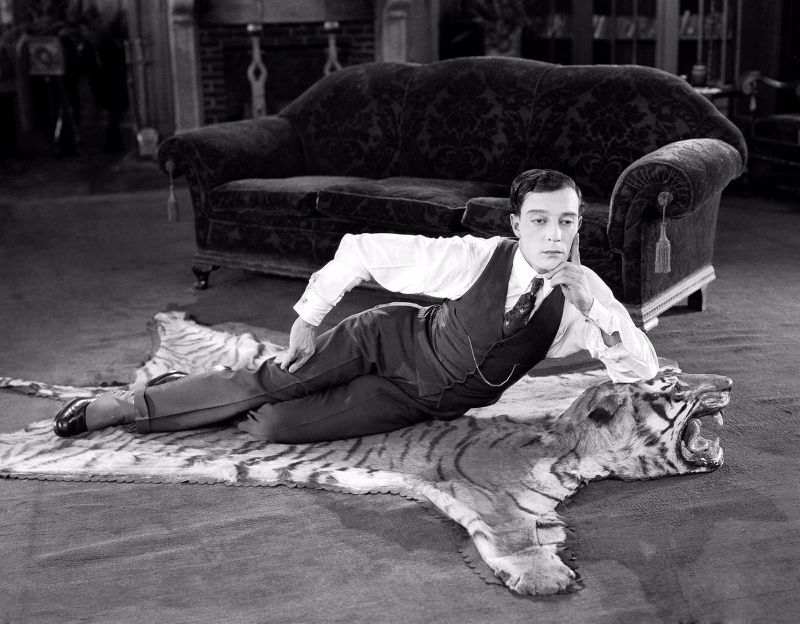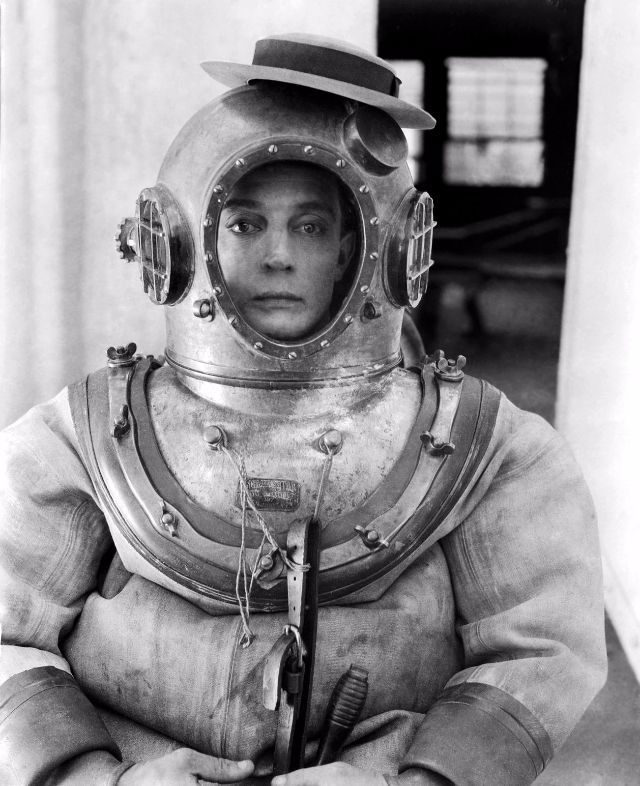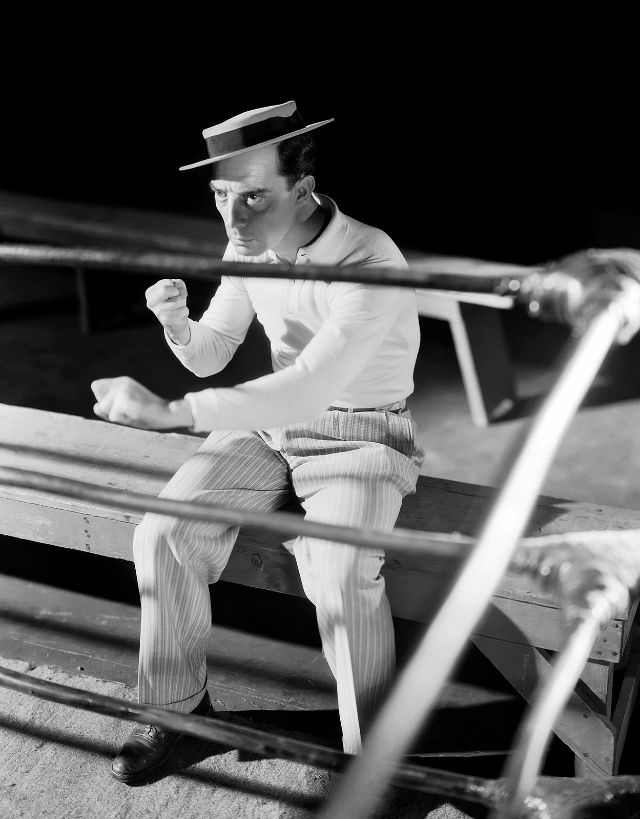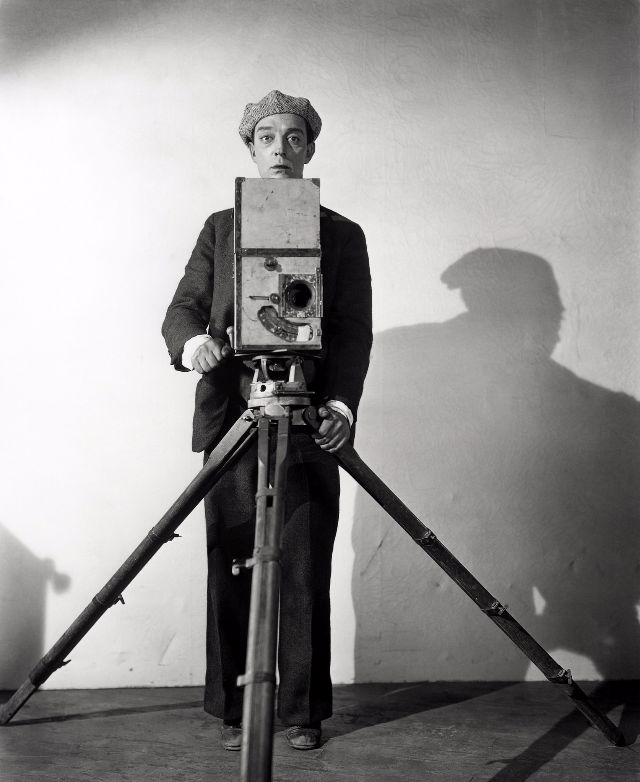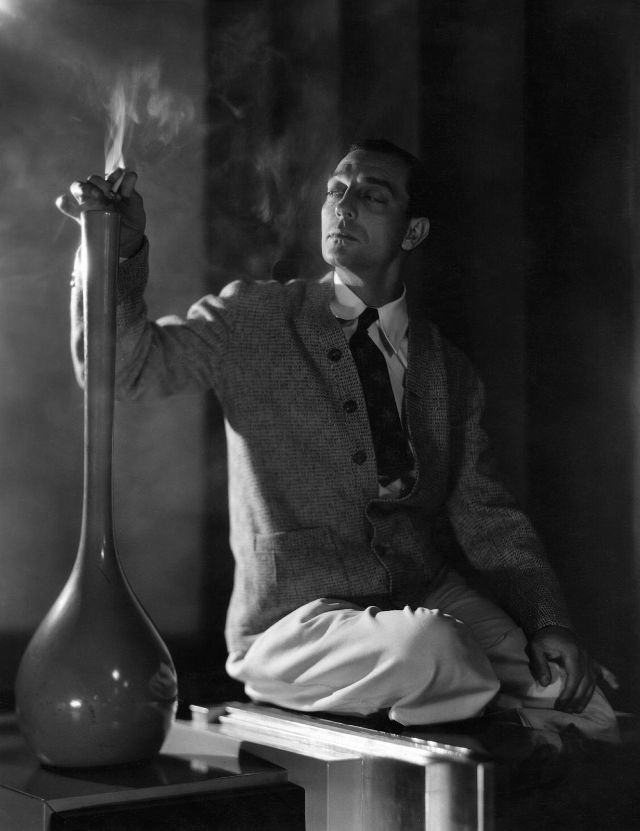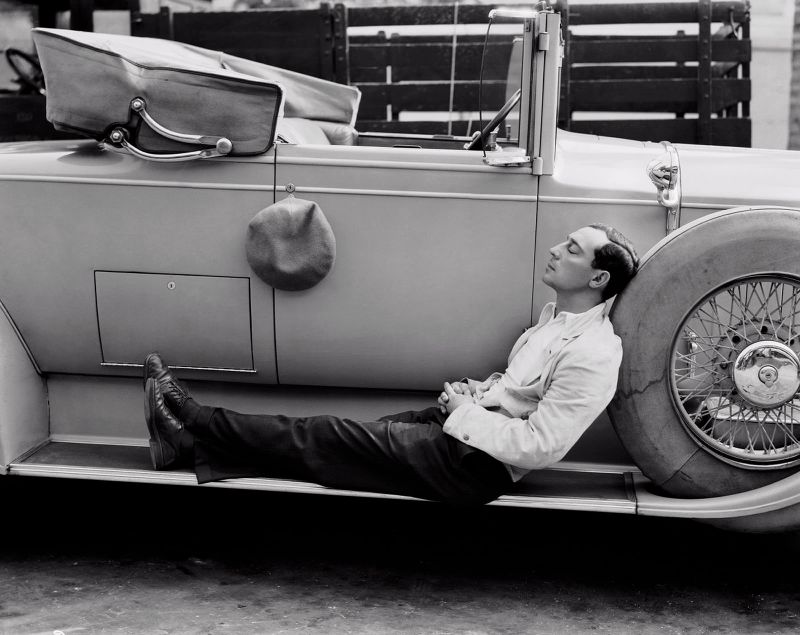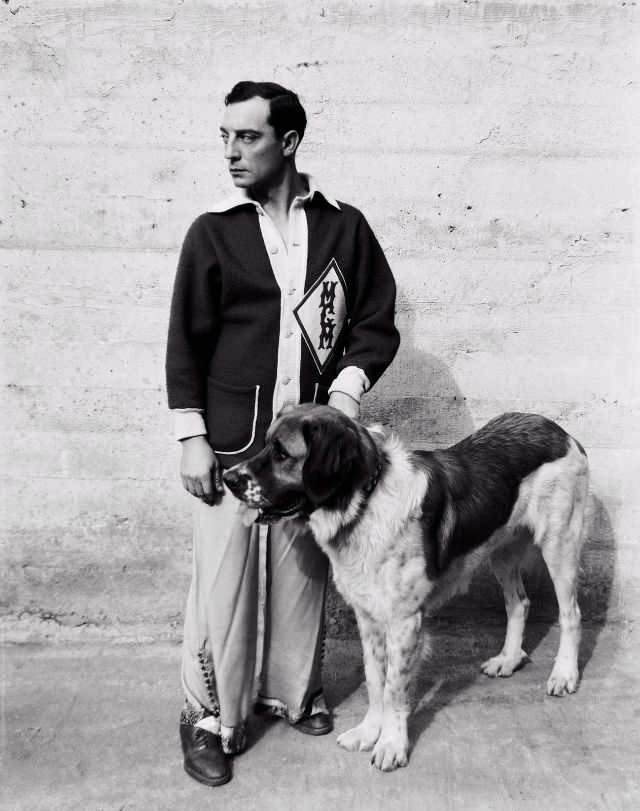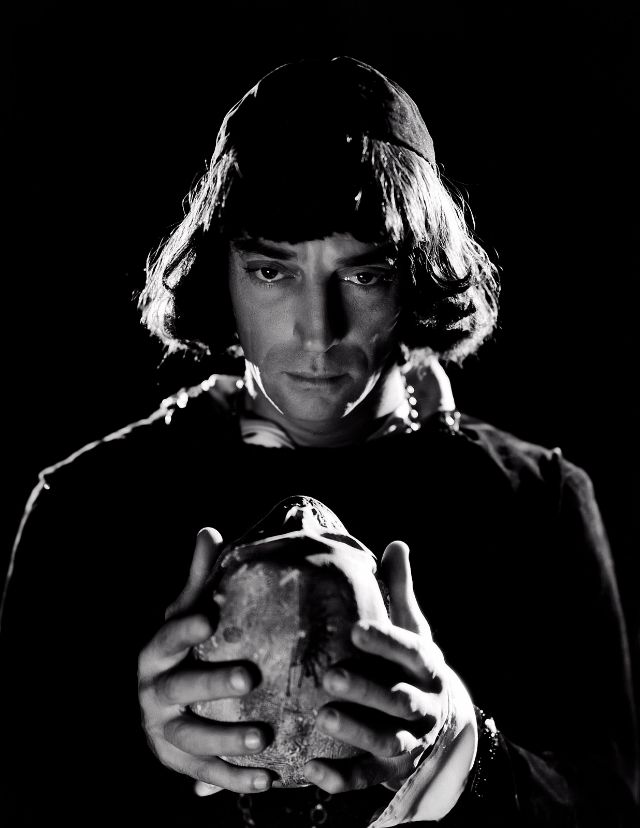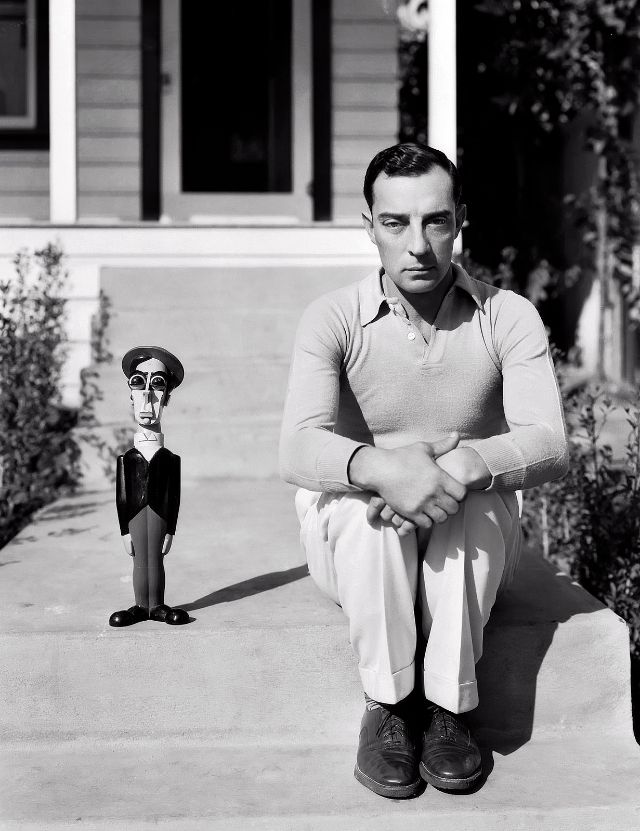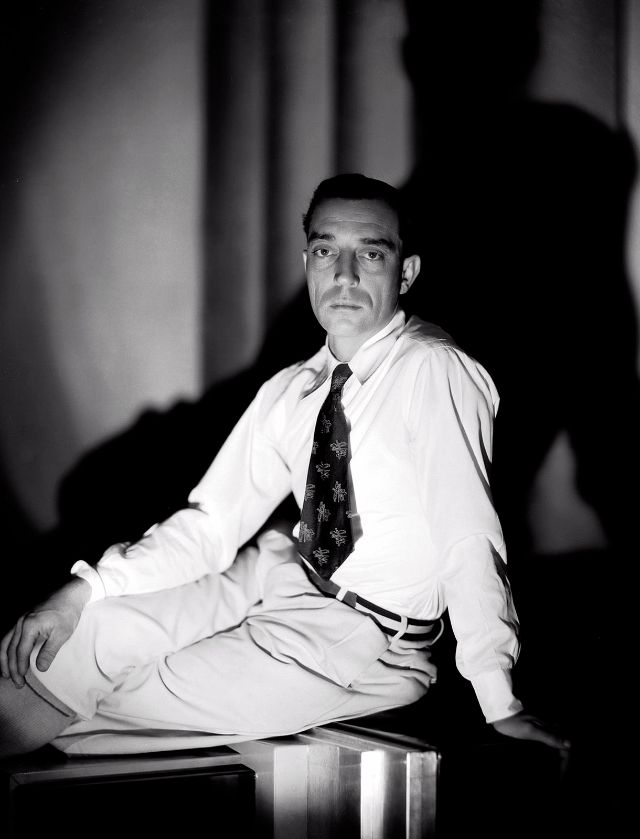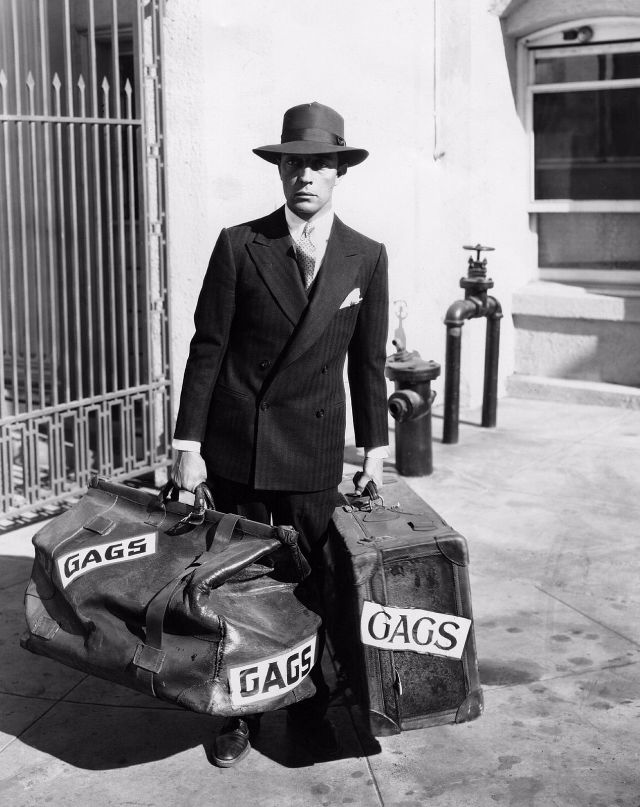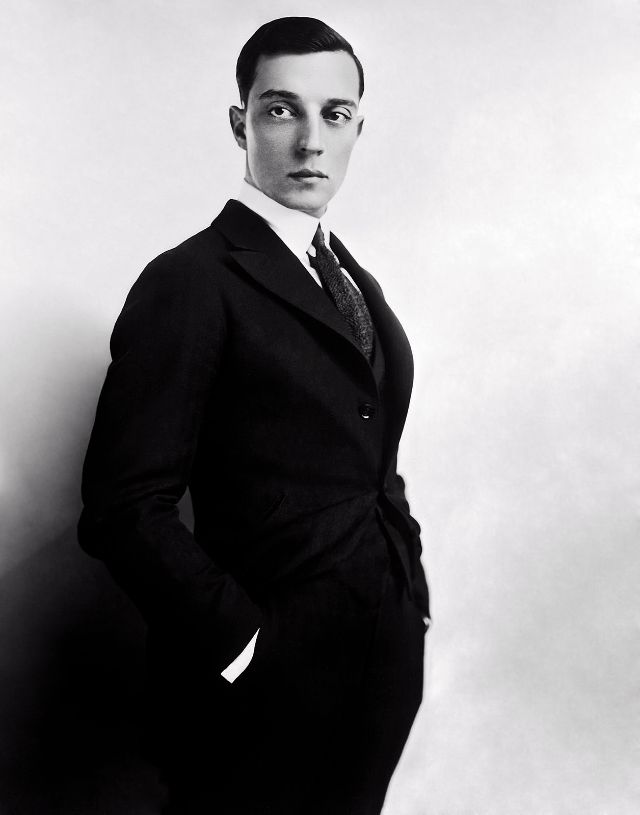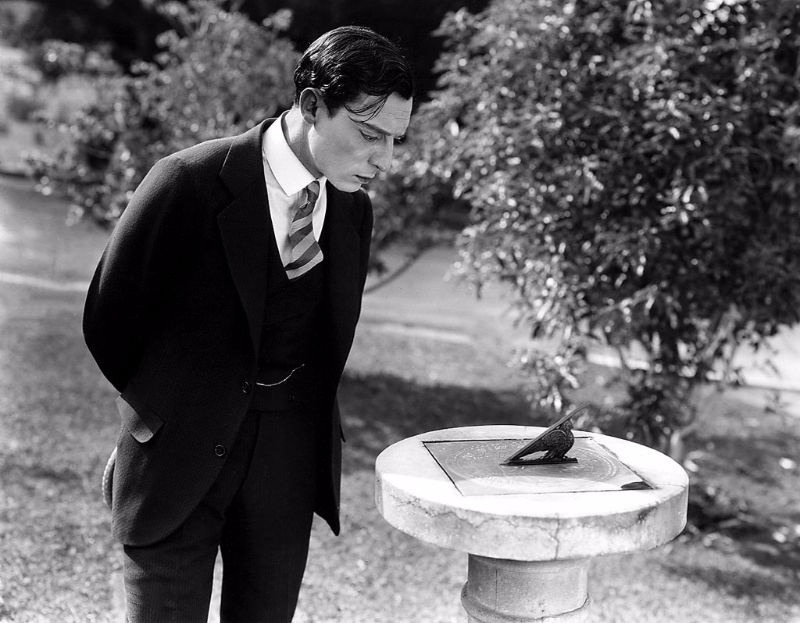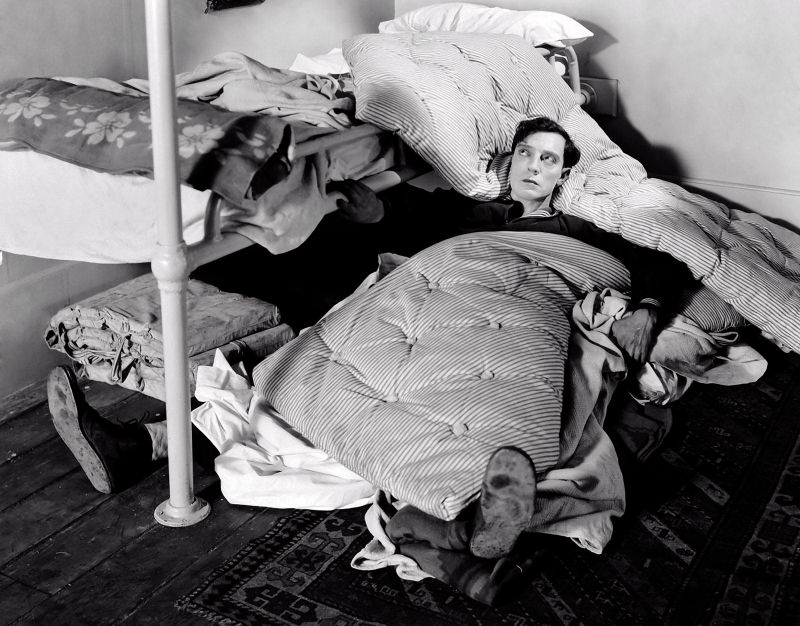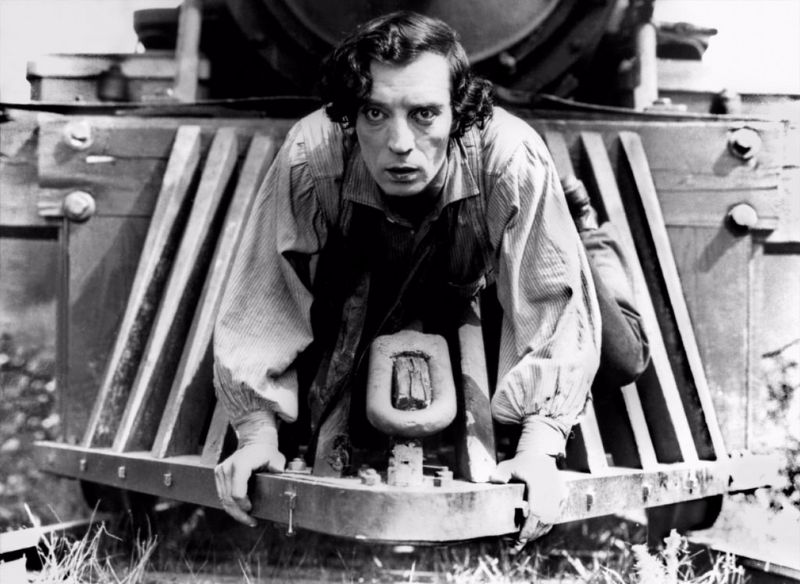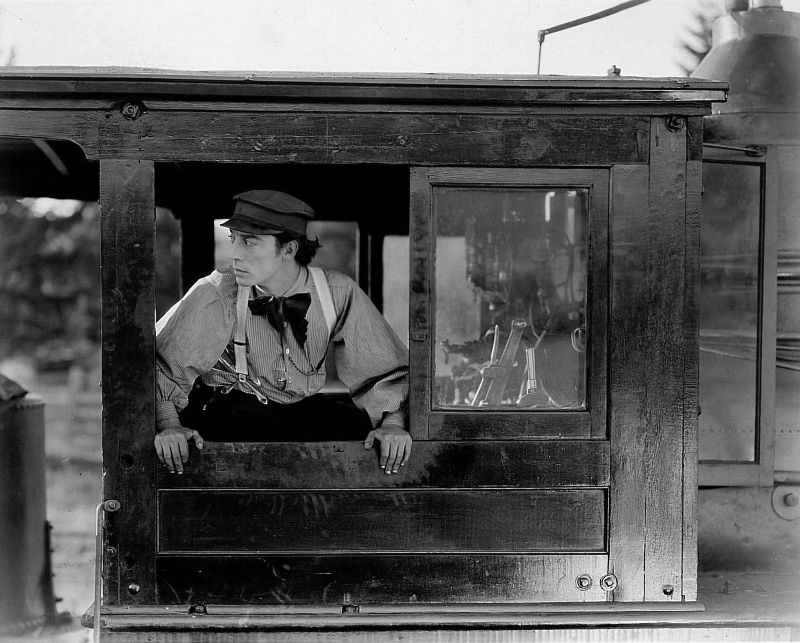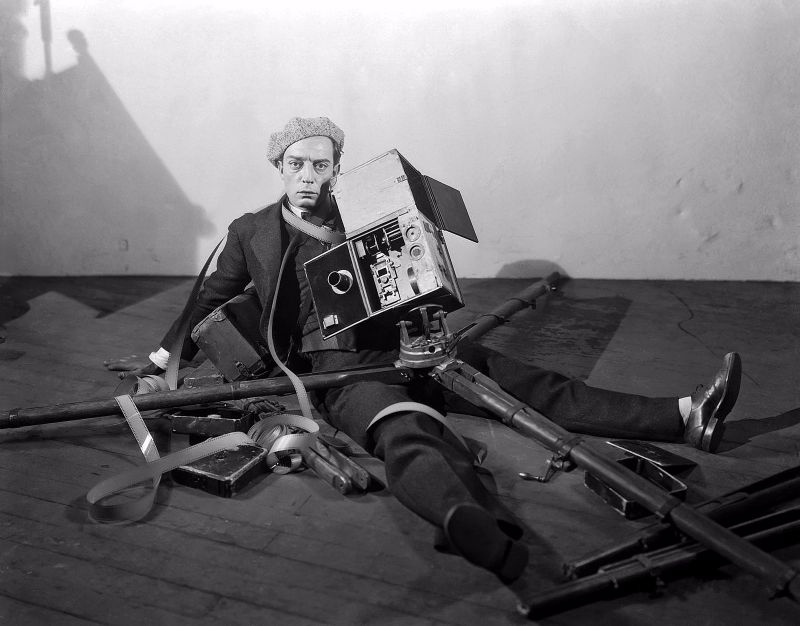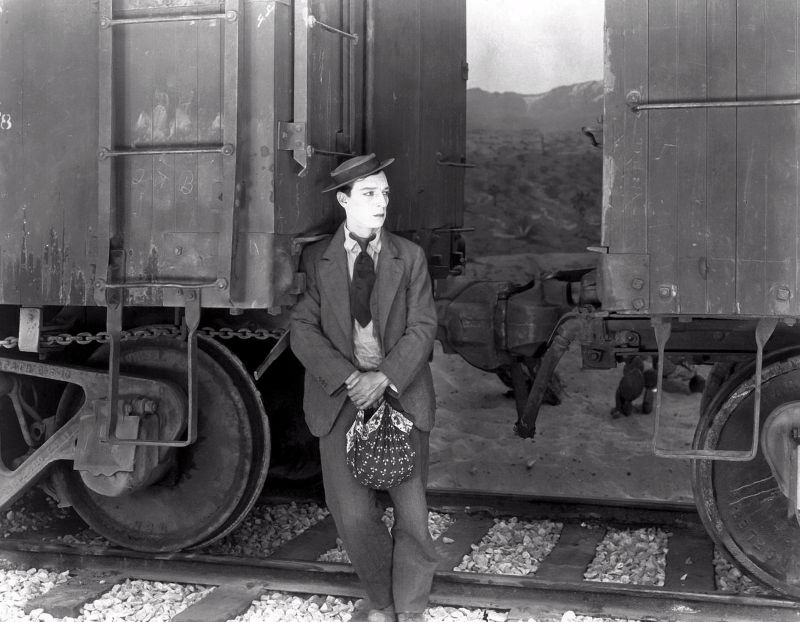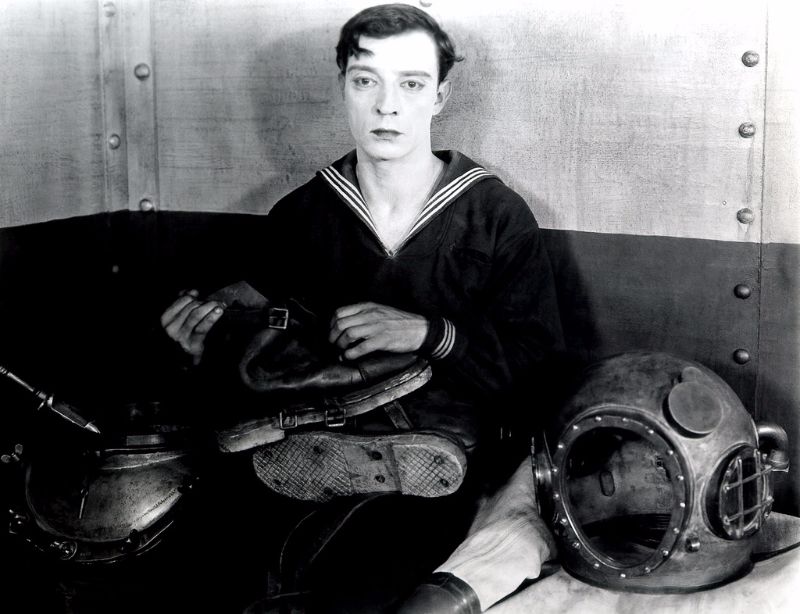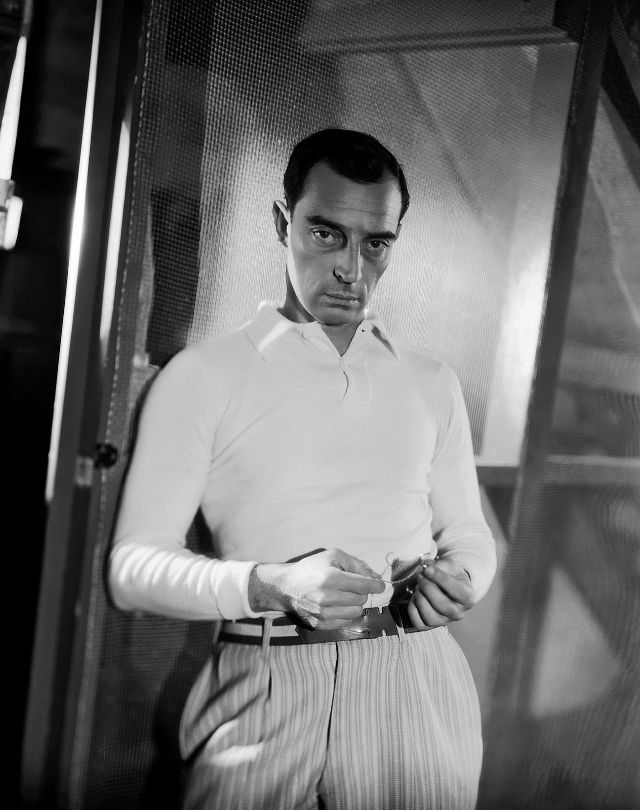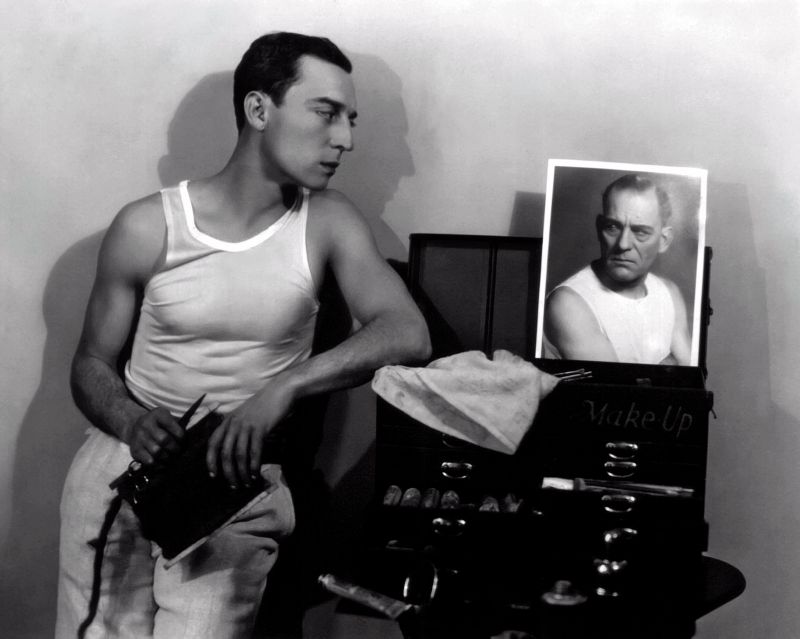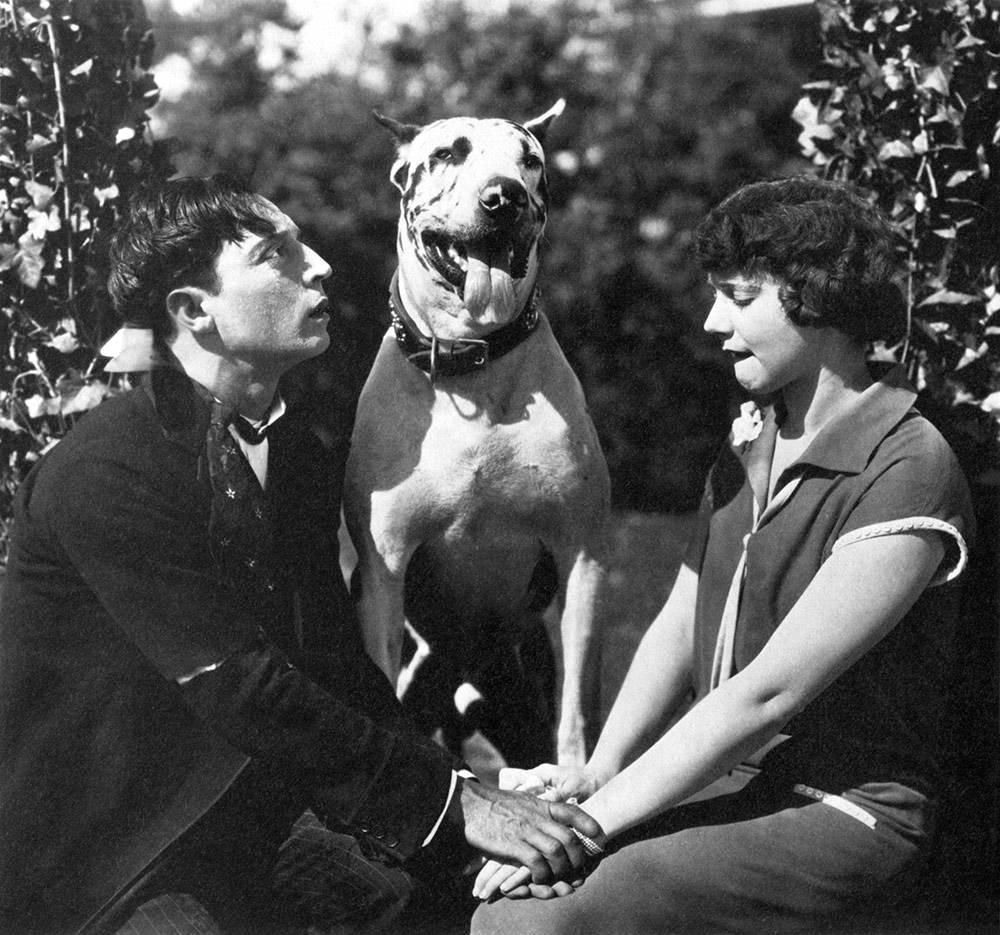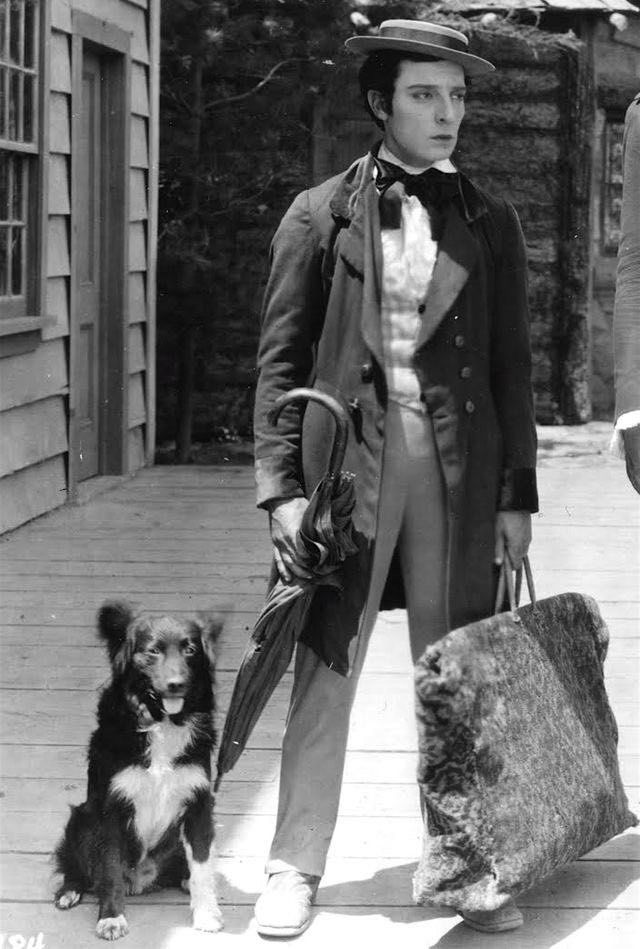He is best known for his silent film work, in which his trademark was physical comedy accompanied by a stoic, deadpan expression that earned him the nickname “The Great Stone Face”. Critic Roger Ebert wrote of Keaton’s “extraordinary period from 1920 to 1929” when he “worked without interruption” as having made him “the greatest actor-director in the history of the movies”. In 1996, Entertainment Weekly recognized Keaton as the seventh-greatest film director, writing that “More than Chaplin, Keaton understood movies: He knew they consisted of a four-sided frame in which resided a malleable reality off which his persona could bounce. “ A vaudeville child star, Keaton grew up to be a tinkerer, an athlete, a visual mathematician; his films offer belly laughs of mind-boggling physical invention and a spacey determination that nears philosophical grandeur.” Born on October 4, 1895, in Piqua, Kansas, Buster Keaton, christened Joseph Frank Keaton, was destined for a life steeped in entertainment. Growing up within a vaudevillian family, he made his stage debut at the tender age of three, earning the moniker “Buster” from Harry Houdini himself after surviving a tumble down a flight of stairs without injury. Keaton’s ascent to cinematic fame burgeoned during the flourishing era of silent movies in the 1920s. Teaming up with Roscoe “Fatty” Arbuckle, he ventured into the realm of film, quickly distinguishing himself for his unparalleled physical dexterity, deadpan expressions, and innovative approach to comedic storytelling. He made a series of 19 two-reel comedies, including One Week (1920), The Playhouse (1921), Cops (1922), and The Electric House (1922). His most renowned works from this period include “The General” (1926) and “Sherlock Jr.” (1924), which showed his prowess in melding physical comedy with technical ingenuity. The General is viewed as his masterpiece: Orson Welles considered it “the greatest comedy ever made…and perhaps the greatest film ever made”. Comedy director Leo McCarey, recalling the freewheeling days of making slapstick comedies, said, “All of us tried to steal each other’s gagmen. But we had no luck with Keaton because he thought up his best gags himself and we couldn’t steal him!” The more adventurous ideas called for dangerous stunts, performed by Keaton at great physical risk. During the railroad water-tank scene in Sherlock Jr., Keaton broke his neck when a torrent of water fell on him from a water tower, but he did not realize it until years afterwards. A scene from Steamboat Bill, Jr. required Keaton to stand still on a particular spot. Then, the facade of a two-story building toppled forward on top of Keaton. Keaton’s character emerged unscathed, due to a single open window. The stunt required precision, because the prop house weighed two tons, and the window only offered a few inches of clearance around Keaton’s body. The sequence furnished one of the most memorable images of his career. His career declined when he signed with Metro-Goldwyn-Mayer and lost his artistic independence. His wife divorced him, he lost his home, and he descended into alcoholism. He recovered in the 1940s, remarried, and revived his career as an honored comic performer for the rest of his life, earning an Academy Honorary Award in 1959. Late in his career, Keaton made cameos in Wilder’s Sunset Boulevard, Chaplin’s Limelight, Samuel Beckett’s Film and the Twilight Zone episode “Once Upon a Time”. Keaton is often described as having been ahead of his time; Anthony Lane wrote “He was just too good, in too many ways, too soon… No action thriller of the last, blood-streaked decade has matched the kinetic violence at the end of Steamboat Bill, Jr., in which a storm pulls Keaton through one random catastrophe after another.” Keaton died of lung cancer on February 1, 1966, aged 70, in Woodland Hills, Los Angeles. Despite being diagnosed with cancer in January 1966, he was never told he was terminally ill. Keaton thought that he was recovering from a severe case of bronchitis. Confined to a hospital during his final days, Keaton was restless and paced the room endlessly, desiring to return home. In a British television documentary about his career, his widow Eleanor told producers from Thames Television that Keaton was up out of bed and moving around, and even played cards with friends who came to visit the day before he died.
(Photo credit: Wikimedia Commons / iMDB / Pinterest / Flickr). Notify me of new posts by email.
Δ Subscribe


